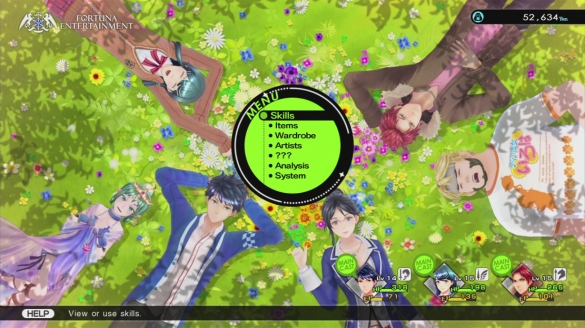Game Commentary: Tokyo Mirage Sessions #FE
I'd like to clear the air before anything. I don't own a Wii U and honestly, from what I've seen of the system, I don't think I want to own it. The console itself is far weaker than others and the controller, while interesting in concept, feels incredibly cheap. But the most important aspect here is that the Wii U does not have any interesting exclusives that I want to play. Except of course, for Tokyo Mirage Sessions #FE. Since that's such a mouthful, I'll be using TMS to refer to it.
TMS has an interesting premise. It has the same sort of vibe as a typical JRPG: you start off getting some kind of power and you recruit people on the way to a certain goal. The interesting part here however is that the whole theme is essentially performing arts, i.e. singing, dancing, acting and modelling. Now, since this is a game commentary and not a review, I'm skipping through all the introductions to the game and diving right into what I think is discussion worthy.
 Now, while combat is great, it is also very stylised. Your 3 main members fight on a performing stage with a giant, cheering crowd in the background. You have spotlights fixating on characters whenever their turn occurs and you can see your other members' expressions (to tell whether or not an attack will work) on huge displays over their heads. To some, it can be quite aggressive in its design but I quite enjoy it. For a game with quite a bombastic (read: niche) theme, this very well plays into that. Slap on the cheering of the crowd whenever you do something awesome (strike a weakness or win) or gloom whenever you fail (hit an enemy resistance) and you've got yourself one heck of a fun battle system.
Now, while combat is great, it is also very stylised. Your 3 main members fight on a performing stage with a giant, cheering crowd in the background. You have spotlights fixating on characters whenever their turn occurs and you can see your other members' expressions (to tell whether or not an attack will work) on huge displays over their heads. To some, it can be quite aggressive in its design but I quite enjoy it. For a game with quite a bombastic (read: niche) theme, this very well plays into that. Slap on the cheering of the crowd whenever you do something awesome (strike a weakness or win) or gloom whenever you fail (hit an enemy resistance) and you've got yourself one heck of a fun battle system.
I love that the jargon follows the same path too. In the menu screen, you don't see characters or inventory. You see 'Artists' to view and read about the various members in your party, you see 'Wardrobe' to change the characters' armour, weapons and accessories, and you see 'Casting' to choose who should join you on stage in battle. Moreover, you have this splash in the menu background with the characters currently in your party and as you gather more members, they get added to the background. These are small things but they really add to the atmosphere of the whole game. I also enjoy how you get 'Intermission' periods between main story chapters to take a breather and do side quests. I love these nuances.
Now, what is a game about performing arts without great music. The 'music video' sequences are scenes that I really like watching and honestly, doing each party member's side quests more or less lead to these excellent performances. Each character's VA is incredible in their own right and coupled with the fact that the performances are actually mo-cap, it adds to the whole flair of it. The soundtrack of the game is incredible as well.
While the story itself is pretty basic, I like the side plots they explore. Most people tend to underestimate the life of an idol. They think it's all fame and fortune. They don't see how much the performers work and practice for it, they don't see how they get the performances out with careful planning and preparation. Singing isn't all about sounding nice and sending a message, it's about communication and conveying your own personal feelings along with the lyrics. The same thing can be said about modelling where you don't just pose and hope for the best, you have a symbiotic relationship with the photographer. You're essentially a team and if you can't trust one another, the photos won't come out perfect.
TMS is very niche and thus, is usually brushed off as an 'otaku' game by most. I agree that it IS definitely very niche but it embraces that. It doesn't try to appeal to everyone and I think that is the reason why it's enjoyable for me.
Disclaimer: I borrowed my friend's Wii U to play this game.



Comments
Post a Comment